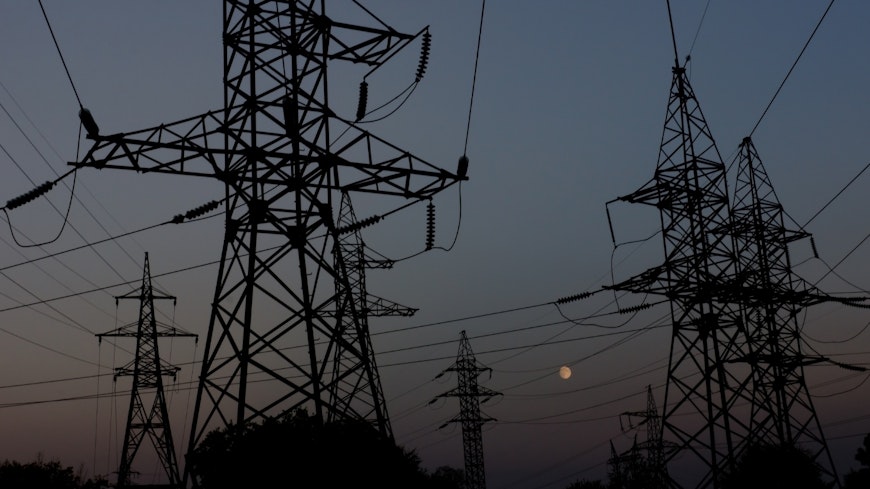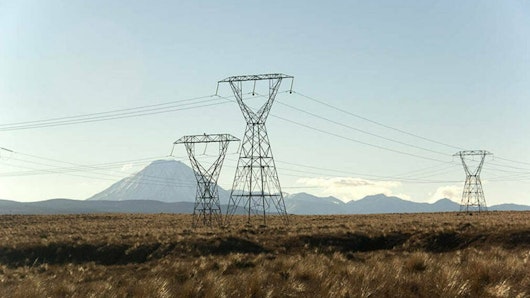
By Jon Duffy
Chief Executive | Tumu Whakarae
As a consumer advocate, it’s rare for me to find myself in a room with a bunch of large industrials and employers, energy retailers and industry bodies, nodding in agreement with what’s been said. I found myself in exactly that situation recently, listening to a range of views on New Zealand’s energy system.

Consumer NZ may have some issues now and again with the organisations that were in the room, but, on this one, we are aligned: the energy sector is broken and is causing harm to businesses and households alike.
A manufacturer that needs to turn off a production line, or worse – close its plant completely and lay off staff – is responding to the same problem in the same way as households that can’t afford to use the heater to stay warm. Shamefully, this is New Zealand in 2025.
We used to be world beaters. Reefton boasts that it beat London and New York to the punch for a municipal power supply in 1888. Today, while there are traces of the technological envelope-pushing that so benefited the good people of Reefton, those looking to push the current envelope are frustrated and constrained by the status quo and the interests that profit from it.
In real terms, power prices are at least 30% higher than they were 25 years ago when the market was created. Since 2019, forward electricity prices have been significantly above the estimated cost of building new generation – a function of demand outstripping supply that is meant to signal to incumbents, or new entrants, that it’s time to expand or enter the market by building generation.
Yes, there has been some recent investment in generation. But it’s too little too late. Why? Because our market rewards lack of supply: there is a financial incentive in delaying investment rather than getting ahead of demand. The price incentives originally intended to balance the system actually achieve the opposite and get in the way of consumer welfare and economic growth, mainly to the benefit of shareholders.
Yet we persist with the existing market design as if it were sacrosanct and wasn’t something we just thought up 25 years ago based on the prevailing wisdom at the time.
This has seen our country lurch from energy crisis to energy crisis. Successive governments and regulators have been too short-sighted, too timid, too close to market participants, too convinced the economic theory underpinning the current market structure will miraculously start delivering, to contemplate real change. Tinkering at the edges is not solving the problem.
At a national level, there is a disconnect between the political rhetoric of ‘going for growth’ and the years of inaction on a fundamental input to that growth: reliable and affordable energy. The current Government has hinted it understands the problems. We have had recent independent ministerial reviews that could spark the momentum for the necessary change – but we have had reviews in the past, many, many reviews, without change of any consequence.
Without change, the only growth we’re set to achieve is growth in energy poverty and de-industrialisation.
At an individual level, Consumer NZ surveying shows 20% of people have experienced difficulty paying their power bill in the last 12 months, with 11% of people telling us they are underheating their homes because of energy costs.
Only 30% of people surveyed think the current system is working well for consumers.
It would be interesting to know what percentage of that group hold shares in a gentailer, because if the success of the market is to be gauged on return to shareholders (with the biggest shareholder being the Government), then actually, everything is fine: nothing to see here.

In markets, the interests of customers (big and small) and shareholders sometimes conflict. Almost without fail, it’s the shareholders who win. All too often, short-term, shareholder-return-oriented decision-making trumps longer-term strategies that could improve quality, choice and prices for customers.
In the electricity market, we have seen industry participants maximise shareholder return investing in building sufficient new generation. These choices are logical in a market set up the way ours is and in the absence of a clear energy strategy from successive governments that promotes the long-term interests of consumers.
Logical but not in the best interests of society because electricity is an essential service. People cannot live decent, healthy lives without it. In a modern, developed economy, electricity should not be treated as a luxury commodity only available to those who can afford it.
The recent open letter published by a concerned group of businesses and consumer groups, including Consumer NZ, should be a wake-up call for the Government. When groups with such a diversity of kaupapa can put their differences aside to make a case for change, it’s worth sitting up and paying attention.
The Government is staking its political future on driving economic growth. Ideologically, whether it sees economic growth as a higher priority than the wellbeing of individuals is a moot point, they are two sides of the same coin, but we are currently failing on both fronts.
It's easy to read off the teleprompter and simply blame high prices on a lack of gas exploration, but that is disingenuous and, as any industry insider will tell you, only part of a problem that’s been 30 years in the making. It’s not a solution to pray for a gas discovery that, if it even eventuates, will then take another 10 years to come online. There will be nothing left to power by then.
If we could take politics out of the discussion, we could develop an energy strategy that promotes consumer welfare and economic growth based on evidence rather than hope. We need the courage to restructure the market to deliver a coherent strategy that transcends parliamentary terms – this is too important not to.
We’ve given the existing market a good try, but it’s not working in the interests of electricity users and the economy. When the frontline is reporting power prices are putting jobs, health and ultimately lives at risk, the need for action is imperative.

Which power company has the happiest customers?
See the full ratings of all power companies in our nationally representative survey.



